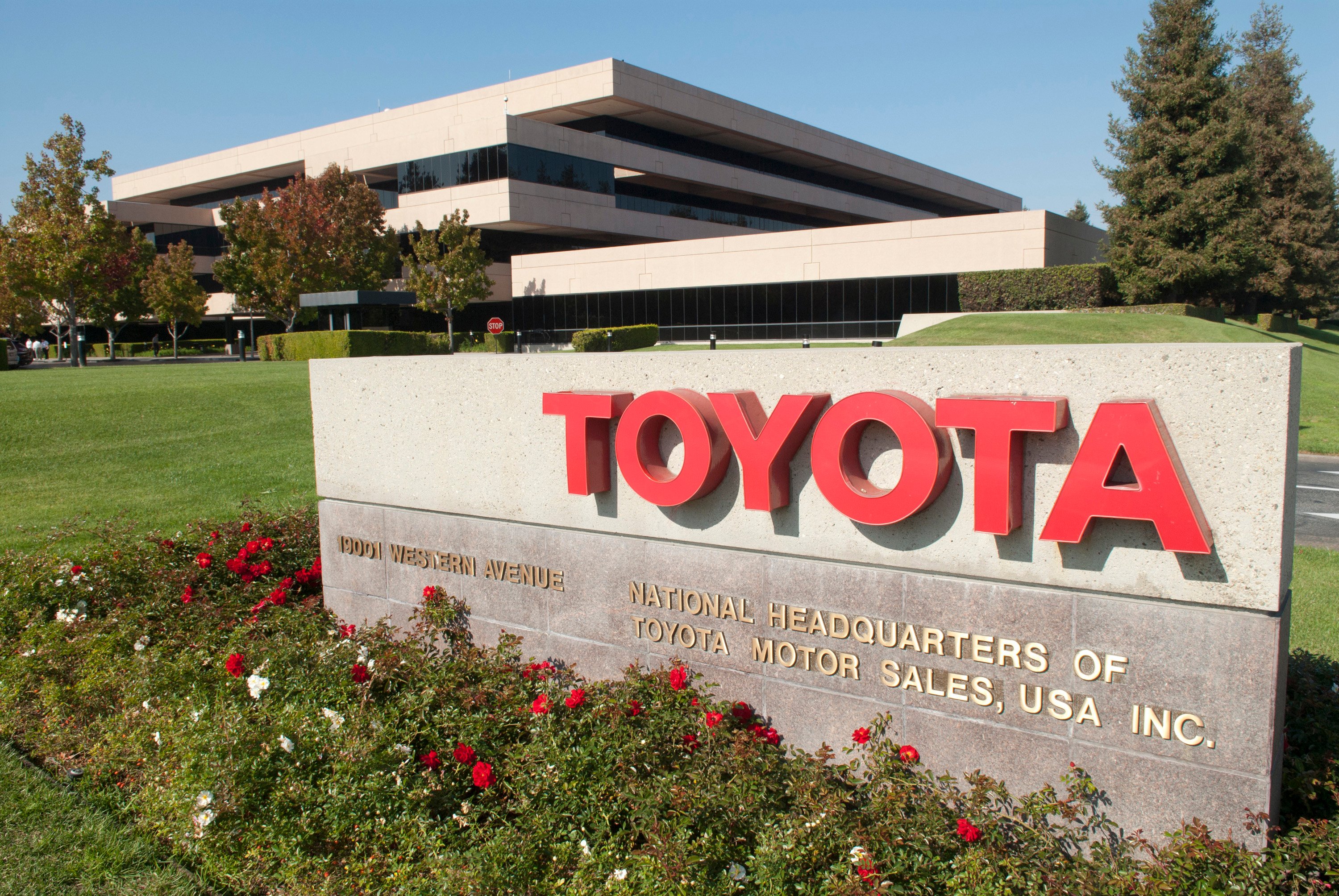Cars and Drivers
Toyota Continues to Recover, Hyundai Still Lags
Published:
Last Updated:
When Toyota Motor Corp.’s (NYSE: TM) U.S. sales collapsed four years ago, and did not make any recovery for three, most industry analysts blamed recalls and the effects of the 2011 Japan earthquake on production. In addition, and probably as important as the other two, there was the rise of the South Korean car industry, which offered Americans what Japanese models once did — low prices with good quality. The fortunes of manufacturers have turned sharply. Japan’s leader, Toyota, has gained back much of its share. Hyundai’s share has fallen. Source: courtesy of Toyota Motor Corp.
Source: courtesy of Toyota Motor Corp.
New forecasts for August cars sales from KBB show that Toyota’s market share will stay at 14.7%, the same as August a year ago. That would put it virtually tied with Ford Motor Co. (NYSE: F), which currently holds the second spot behind General Motors Co. (NYSE: GM). Toyota will sell 214,000 cars and trucks this month, up 13.5% . Hyundai and its sister brand Kia will show a sales improvement of only 7.1%. That figure seems impressive at first, but it is not compared to an expected improvement of 13.6%, to an August total of 1.46 million, for the entire industry.
The recovery of the American car industry has been marked by an unexpected improvement in fortunes. KBB expects total sales for the year to be as high as 15.6 million. While that is not has high as the more than 16 million sold in 2005 and 2006, auto manufacturers have cut costs so sharply that margins are better than in most years in the past. The U.S. recovery has been essential to global car companies because of the Europe recession and an unexpected slowing of sales in China.
It is not too difficult to see why, in U.S. sales, Toyota has gained momentum while Hyundai has lost its. Toyota has a strong reputation in America, developed over a period of more than three decades. That helped it over the recall bump. Most of its models continued to post strong reputation scores in research studies like those conducted by J.D. Power. Hyundai was not so fortunate when bad publicity shredded its image.
In late 2012, the Environmental Protection Agency found that Hyundai and Kia overstated gas mileage on 900,000 cars. The problem encompassed 13 models. The companies had no place to run and hide from the issue. The effects of the trouble apparently have lingered.
Car industry experts might point out that Toyota was lucky. A new, prime competitor stumbled, which helped Toyota’s sales. On the other hand, the prowess of the Toyota brand was such that consumers had reasons to return to the brand that had nothing to do with issues at another car company.
KBB August forecasts:
Sales Volume 1 |
Market Share 2 | |||||
| Manufacturer | Aug-13 | Aug-12 | YOY % | Aug-13 | Aug-12 | YOY % |
| General Motors (Buick, Cadillac, Chevrolet, GMC) | 265,000 | 240,520 | 10.2% | 18.2% | 18.7% | -0.6% |
| Ford Motor Company (Ford, Lincoln) | 216,000 | 196,749 | 9.8% | 14.8% | 15.3% | -0.5% |
| Toyota Motor Company (Lexus, Scion, Toyota) | 214,000 | 188,520 | 13.5% | 14.7% | 14.7% | 0.0% |
| Chrysler Group (Chrysler, Dodge, Jeep, RAM) | 168,000 | 148,472 | 13.2% | 11.5% | 11.6% | 0.0% |
| American Honda (Acura, Honda) | 154,000 | 131,321 | 17.3% | 10.5% | 10.2% | 0.3% |
| Nissan North America (Infiniti, Nissan) | 113,000 | 98,515 | 14.7% | 7.7% | 7.7% | 0.1% |
| Hyundai-Kia | 119,000 | 111,127 | 7.1% | 8.2% | 8.6% | -0.5% |
| Volkswagen Group (Audi, Volkswagen) | 54,000 | 52,538 | 2.8% | 3.7% | 4.1% | -0.4% |
| Total 3 | 1,460,000 | 1,285,292 | 13.6% | – | – | – |
| 1 Historical data from OEM sales announcements | ||||||
| 2 Kelley Blue Book Automotive Insights | ||||||
| 3 Includes brands not shown | ||||||
A financial advisor can help you understand the advantages and disadvantages of investment properties. Finding a qualified financial advisor doesn’t have to be hard. SmartAsset’s free tool matches you with up to three financial advisors who serve your area, and you can interview your advisor matches at no cost to decide which one is right for you. If you’re ready to find an advisor who can help you achieve your financial goals, get started now.
Investing in real estate can diversify your portfolio. But expanding your horizons may add additional costs. If you’re an investor looking to minimize expenses, consider checking out online brokerages. They often offer low investment fees, helping you maximize your profit.
Thank you for reading! Have some feedback for us?
Contact the 24/7 Wall St. editorial team.